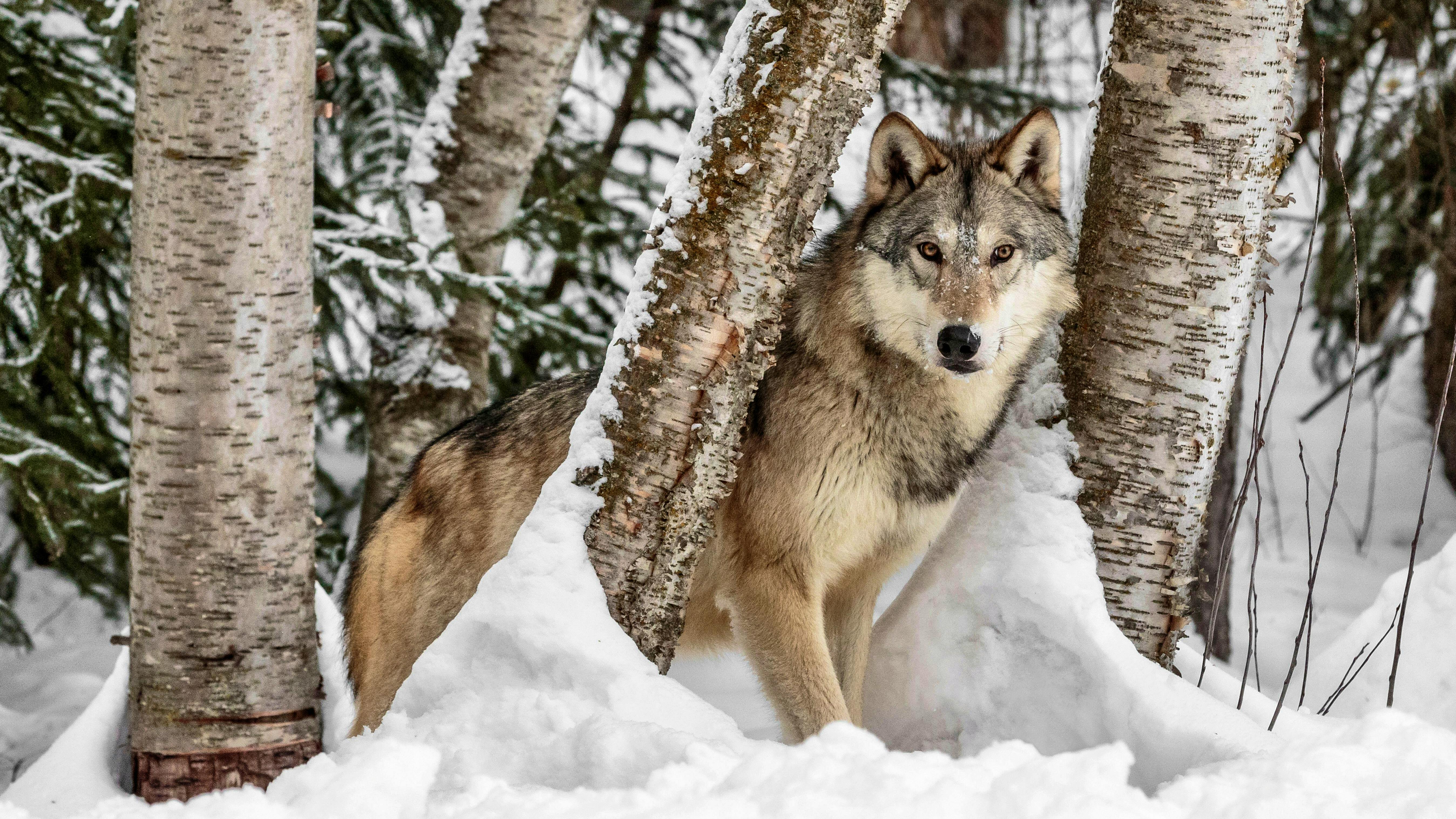2013 off to a rocky start – Montana’s legislature only convenes every other year, so you’d think they’d have more important business to attend to than figuring out how to kill more wolves. But you’d be wrong. One of the very first bills introduced this year aims to limit the number of wolves in the state to 250. That’s 400 less than the end of year total in 2011 (653), and only 100 more than the scientifically dubious federal minimum (150).

A female wolf follows her nose through the Wood River Valley of central Idaho.
In the House Fish, Wildlife and Parks committee hearing yesterday (find archived video footage here), bill sponsor Ted Washburn (R-Bozeman) trotted out the same old tired arguments about decimated elk herds and impacts on livestock producers that have little basis in reality. He also ignored the fact that Montana is already taking unnecessarily aggressive action to limit wolf numbers statewide. Last year, hunters killed 166 wolves. This year, the state did away with most of its quotas and added trapping to the mix as well. So far, hunter and trappers have killed 146 wolves this season and there are still seven weeks left. In addition, state wildlife managers killed another 103 wolves in 2012 in response to livestock depredations, even though only 99 confirmed losses were reported (which falls below the 5-year average). Montana should be looking for ways to better manage the wolf population that’s already on the ground, not mandating further reductions.
Meanwhile, Idaho Fish and Game Commission will be voting next week to increase funding for wolf-killing in the parts of the state where elk herds are considered “below objective.” Instead of letting nature strike its own balance between predator and prey, the state is proposing to pay USDA’s Wildlife Services to shoot more wolves to attempt to boost elk herds for hunters. Having a federal agency kill America’s native predators to subsidize hunting is not an appropriate use of our nation’s precious resources, especially when more than 400 wolves were already killed in Idaho last year. If you are in the Boise area, please consider testifying at the hearing. It starts at 7pm at Idaho Department of Fish and Game Headquarters, 600 South Walnut St., Boise, ID 83712. If you’re in Idaho and can’t attend the hearing, please contact the IDFG commissioner in your area to oppose hiring federal agents to kill more wolves.
No wolves for RMNP – So much for trying to restore wolves to Rocky Mountain National Park to keep exploding elk populations in check. Park managers didn’t even consider the option, deciding they would rather have sharpshooters do the job. Some of our colleagues in the conservation community took the National Park Service to court to try to force them to reconsider bringing back wolves instead of using sharpshooters. But a federal appeals court decided it was fine for the park to ignore the more balanced option, which also had the potential to bring ancillary ecological and economic benefits as well. As researchers have discovered in Yellowstone, restoring wolves has led to a cascade of positive changes in the ecosystem and booming business for those connected to wildlife tourism. That’s something that sharpshooters will never bring. Read more about the court’s decision in the Denver Post.
Heads up for Washington state wolf supporters – The state is hosting a series of wolf meetings next week, and it’s important that they hear from Washington state residents who support wolf recovery. This is your chance to show your support and to ask the Department to avoid losing more packs under circumstances like those that led to the killing of the Wedge Pack last summer.
- January 16 – Center Place Regional Event Center, 2426 N. Discovery Place, Spokane Valley, 6-8pm
- January 17 – Office Building #2, at 14th Ave. & Jefferson St., Olympia, 2:30-5pm
- January 18 – Magnuson Park’s Garden Room, 7400 Sand Point Way NE, Seattle, 6-8pm
Please tell the state officials:
- Washington Department of Fish and Wildlife needs more focus on nonlethal deterrents to reduce wolf and livestock conflicts.
- The state should manage wolves according to the 2012 Washington Wolf Management Plan that was created through broad public involvement.
- The Plan acknowledges that wolves are a rare species, endangered in parts of the state, and deserve greater tolerance and consideration than more common species while their population level is so low.
- As directed by the Plan, while wolf numbers are so low, they should be managed under the state’s Endangered Species Division and not as Big Game.
If you can’t attend in person, please call or send a note to newly-elected Governor Inslee alerting him to your concerns for wolves in Washington.
Where the Wild Things were – Watch the trailer below for a preview of a new film that our friends at NRDC have commissioned, documenting the cruel and excessive practices of Wildlife Services. We’ll be working together in the coming years to push Congress to reform this broken federal agency that appears to be stuck in the 1930s with its myopic focus on killing America’s native predators.
From the Blog






Follow Defenders of Wildlife
facebook twitter instagram youtube tiktok threads